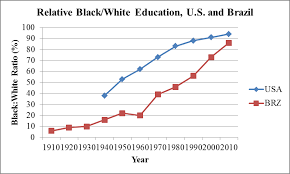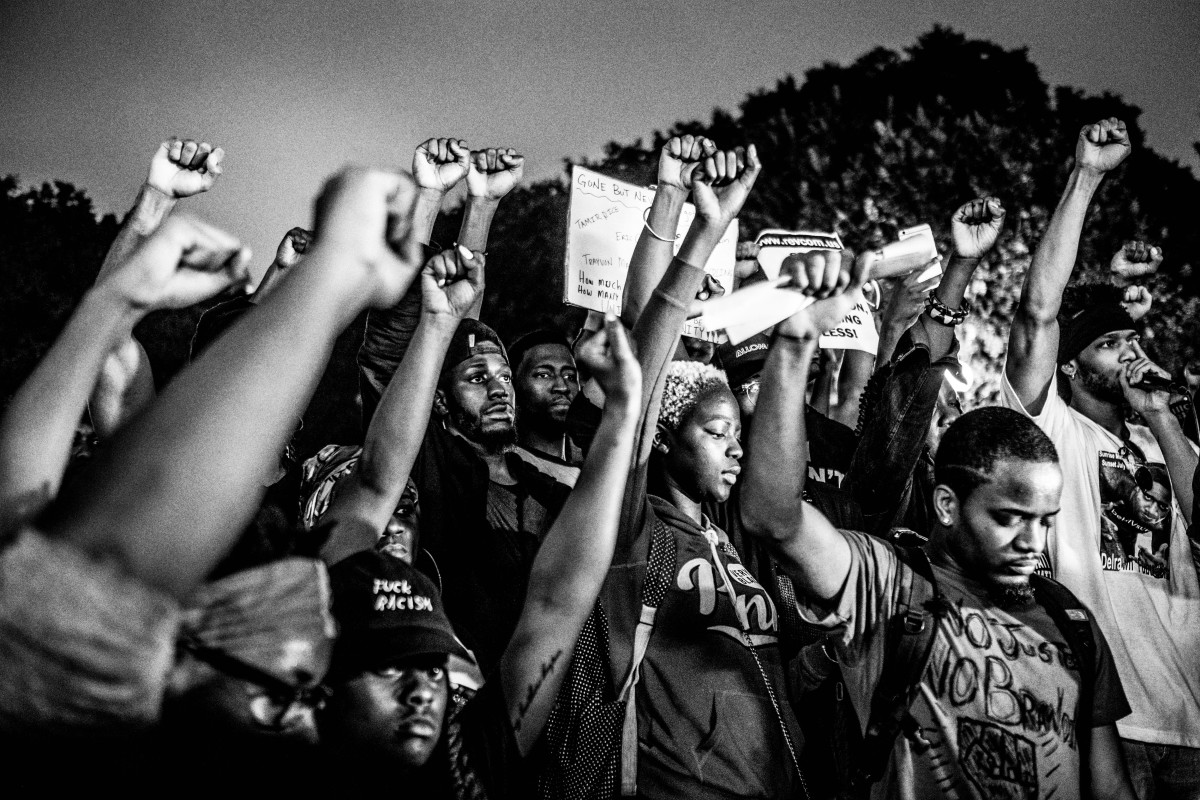Racism and Violence in USA and Brazil
Introduction
Violence, to some extent, has given political agency to blacks in the United States, while nonviolence has kept its Brazilian peers hidden, in the background and largely ignored. Currently the big debate seems to revolve around riots, riots and the use of violence in protests against police violence in the United States is damaging, which seems to revolt people much more than the problem at hand, the assassination of George Floyd and the systemic racism that made it possible. Many wonders if the disorder helps or damage the cause. The answer is complex and delicate, but violence, to some extent, has given political agency to blacks in the United States, while nonviolence has kept its Brazilian peers hidden, in the background and largely ignored.
The harsh truth of racism.

Did You Know
The Constitution of Brazil, on the other hand, has established dubious academic theses - dating back to the 19th century, even before slavery was banned - in support of racial whitening, in an effort to eliminate African characteristics and genes from the Brazilian genetic pool through miscegenation.
Racism in literature
The racial mix in Latin America was incorporated into American literature, particularly in the first half of the 20th century.
- As a positive alternative to ethnic and racial segregation and dehumanization that led to the Jewish holocaust and was a source of violent conflict in the United States during Jim Crow and South African apartheid in the 1950s and 1960s.
- At the end of the 20th century, the Brazilian academic consensus on racial mixing began to change. With the rise of multicultural discourses and identity policies, the practice began to be denounced for what it was - a myth to hide and encourage the reproduction of racial inequalities and systemic racism.
- The miscegenation and the myth of Brazilian racial color blindness gave rise to a population lacking sufficient tools to unite and fight for rights because they were taught, conditioned to ignore the blood that runs through their veins.
Descendants of Africa
The United States and Brazil dealt with their descendants of the Africans they brought as slaves to build their colonies and enrich their elites was very different. The United States belongs to the group of nations that chose to segregate blacks, establishing racist laws.
Statistics of Racsim
While one tactic led to violence, riots, protests, the other to a country where vast groups of people often do not identify themselves as black or brown. Their traditions and customs were incorporated into society without expressive credits to black culture, denying them the right to pride of their race and heritage in the public sphere, outside their communities. It is no coincidence that the number of Brazilians who identify themselves as black or brown has increased in the 21st century. The change goes hand in hand with the empowerment of black movements in the country, in addition to the State's affirmative action policies. In seven years, between 2012 and 2018, the number of Brazilians who declare themselves black - which also includes pardons for census purposes - has increased by almost 30% . Between 2018 and 2017, the increase was 32.2%.
USA and Brazil

People who reconsider their race because of affirmative action’s pass on this new identity. Their children, and even older family members, assimilate the new identity, creating a restructuring of the culture.
— IBGE researchBlack Braziians
Similarly, the number of Brazilians who claim to be white has been steadily declining, starting around the same time. Until 2014, most Brazilians identified themselves as white, while now browns make up the majority of the population. Affirmative policies certainly play a role, but not just because citizens can directly benefit from being black in the context of access to higher education. With these changes, along with the social networking boom at the beginning of the century, black movements have gained more visibility. The mainstream media turned their attention to issues related to black Brazilians, which had been largely ignored throughout history.
Differentiation of colour

Case Study
The case of João Pedro Matos Pinto's death recently attracted media attention. On May 18, just a week before Floyd's death, three police officers, allegedly chasing suspects, broke into a house in Rio's Salguero favela, where 14-year-old João Pedro was playing with some cousins. The police opened fire, shooting the teenager in the back. The police took João Pedro in a helicopter, leaving the family without information about his whereabouts or condition for more than 17 hours. Ágatha Félix's home also had international repercussions. In September, the 8-year-old girl and her mother were returning to their home in Complexo do Alemão, in Rio, when police shot the van they were traveling in, killing Ágatha.These are not isolated incidents, but are part of an outrageous trend. In the past decade, the police killed more than 33,000 civilians - at least 75% of them were black. Protests have taken place, particularly within the communities most affected by this violence, but nothing like the turmoil seen in the United States.








